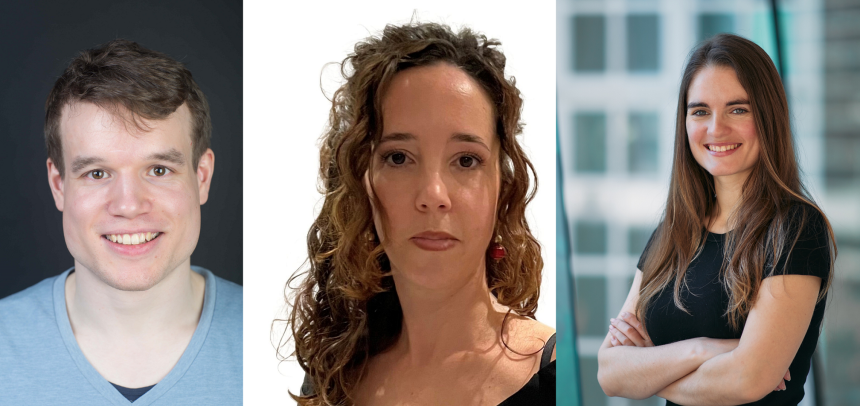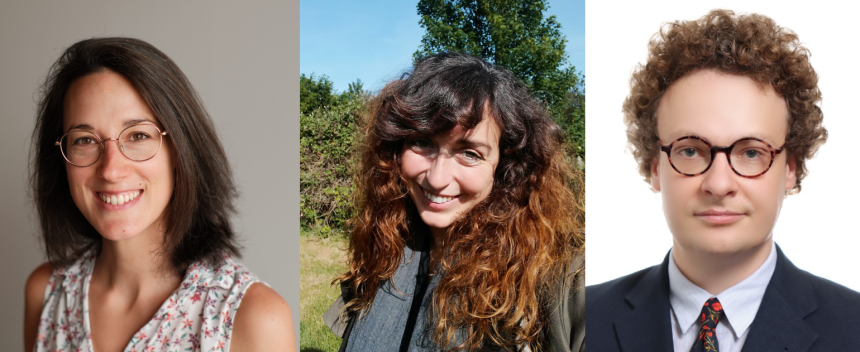Today, the European Research Council (ERC) - the premier European funding organisation for excellent frontier research - has announced the awarding of 494 major European Research Council (ERC) Starting Grants to young scientists and scholars across Europe, including six Oxford University researchers. The funding - totalling nearly €780 million this year- is part of the Horizon Europe programme and will support researchers at the beginning of their careers to launch their own projects, form their teams, and pursue their most promising ideas.
The application process for ERC Starting Grants is highly competitive: this year, around 14% of applications were successful, with 494 researchers selected out of 3,474 proposals.
Each of the Oxford researchers selected for a Starting Grant will receive up to €1.5 million for a period of five years.
Iliana Ivanova, Commissioner for Innovation, Research, Culture, Education and Youth, said: 'The European Commission is proud to support the curiosity and passion of our early-career talent under our Horizon Europe programme. The new ERC Starting Grants winners aim to deepen our understanding of the world. Their creativity is vital to finding solutions to some of the most pressing societal challenges.'
Oxford University's 2024 ERC Starting Grant winners:
I'm excited about receiving this support for my research, which will help me build a research group, strengthen international collaborations, and dedicate more time to my research agenda. I'm grateful to my mentors and collaborators, without whom receiving this grant would not have been possible.
Associate Professor Christian Coester, Department of Computer Science
Associate Professor Christian Coester, Department of Computer Science
Associate Professor Coester's work addresses questions at the forefront of theoretical computer science, both in classical algorithm paradigms as well as how machine learning can be leveraged to improve algorithms. Using the ERC Starting Grant, he will explore how to develop more effective strategies for handling the associated uncertainty of online algorithms - algorithms which receive their input over time and have to make decisions before future parts of the input are revealed. One strategy is to design learning-augmented algorithms that can take advantage of predictions when these are good, while simultaneously avoiding being misled if these predictions prove to be erroneous.
In the humanities, the ERC Starting Grant is unique in giving an early career researcher the opportunity to embark on an incredibly ambitious, disruptive, and risky project with an unparalleled level of intellectual freedom. I am thrilled at the prospect of starting this adventure.
Dr Federica Gigante, Faculty of Asian and Middle Eastern Studies and the Khalili Research Centre
Dr Federica Gigante, Faculty of Asian and Middle Eastern Studies and the Khalili Research Centre
Dr Gigante's ERC-funded project UNSEEN focuses on the role of slavery in the transmission of things and knowledge from the Islamic world to Europe in the late 16th and 17th centuries. In particular, it will focus on the port towns of France, Spain, and Italy and their communities of enslaved galley-rowers of Muslim origins. During periods of non-navigation, these individuals turned into artisans and merchants, opened pop-up shops, and sold goods and remedies to local communities. This, Dr Gigante argues, brought into Europe technological and medicinal practices from the Islamic world and shaped the growing interest in Islamic culture among European collectors, physicians, and scholars.
I am incredibly happy to be a recipient of an ERC Starting Grant, both because of its prestige and for the support it will provide for my junior research group. I owe a big debt and thank you to my current colleagues, former colleagues and mentors, my lab members, and my friends and family for their support.
Dr Georgia Isom, Sir William Dunn School of Pathology
Dr Georgia Isom, Sir William Dunn School of Pathology
Antimicrobial resistant (AMR) micro-organisms are a major global threat to modern medicine. A major determinant of AMR in bacteria is the cell envelope, consisting of layers of protection that form physical barriers to drugs. Dr Isom's research combines structural biology, biochemistry, and microbiology to study the molecular mechanisms by which bacteria build the cell envelope and protect themselves against antibiotics. The ERC Starting Grant will fund new work to uncover how bacteria transport lipids to build this cell envelope, potentially revealing new drug targets to weaken these barriers.
 From left to right: Associate Professor Christian Coester, Dr Federica Gigante, and Dr Georgia Isom.
From left to right: Associate Professor Christian Coester, Dr Federica Gigante, and Dr Georgia Isom.Dr Clémence Ligneul, Nuffield Department of Clinical Neurosciences
Getting this ERC Starting Grant brings a lot of peace of mind: five years to focus on my research and the exciting opportunity to build a team, from bud to blossom. I am grateful to the Nuffield Department of Clinical Neurosciences and the WIN Physics and Preclinical Imaging Groups, for creating a healthy and supportive work environment, where I could meet amazing collaborators and friends.
Dr Clémence Ligneul, Nuffield Department of Clinical Neurosciences
Dr Ligneul's research focuses on methods to non-invasively image the microstructural properties of the brain. The ERC Starting Grant will fund a new project - called CellPrism - to track how the shape and quantity of different cell types in the brain changes during healthy development or disease. This will couple MRI scans with an advanced magnetic resonance spectroscopy method, called "diffusion-weighted MRS" (dMRS), which can detect the displacement of certain intracellular brain metabolites. These have distinct concentrations in different cell types, making dMRS highly sensitive to specific cell morphologies.
Associate Professor Berta Verd, Department of Biology
I am very grateful to the many mentors and colleagues that have helped me over the years, but special mention goes out to my brave DPhil students who joined me when I first opened my lab. I also thank my family, in particular my husband Greg and my parents, for their unwavering support.
Associate Professor Berta Verd, Department of Biology
Using her ERC Starting Grant, Associate Professor Berta Verd aims to explore how developmental processes have evolved to generate diversity in the number of vertebrae, a highly variable trait amongst vertebrates which ranges from as few as ten in some frogs to several hundred in snakes. She will address this question using a highly interdisciplinary approach in Lake Malawi cichlid fishes, an emergent model system in evolutionary developmental biology studies. This project will advance our fundamental understanding of how phenotypic diversity is generated, with potential far-reaching applications such as predicting how animals evolve in response to climate change or improving organoid design for applications in regenerative medicine.
My studies will provide key new insights into the plasticity of viral glycoproteins and evolutionary changes in receptor specificity. This will shed light on the emergence of pandemic viruses and will improve the ability to monitor and prepare for emerging pathogens.
Dr Antoni Wrobel, Department of Biochemistry
Dr Antoni Wrobel, Department of Biochemistry
Dr Wrobel's project focuses on the structure and evolution of viral glycoproteins: molecules which bind to receptors on cell surfaces to enable a virus to enter a host. By combining structural, biochemical, and biophysical approaches, he and his team will investigate how different receptor types are recognised structurally by very similar viral glycoproteins, and how the type of receptor affects the strength of interaction and the process of viral entry. In addition, they will explore how changes in receptor binding can influence viral evolution, including the emergence of pandemic viruses, such as SARS-CoV-2.
Full details about the 2024 ERC Starting Grants can be found on the ERC website.
 From left to right: Dr Clémence Ligneul, Associate Professor Berta Verd, and Dr Antoni Wrobel.
From left to right: Dr Clémence Ligneul, Associate Professor Berta Verd, and Dr Antoni Wrobel.





